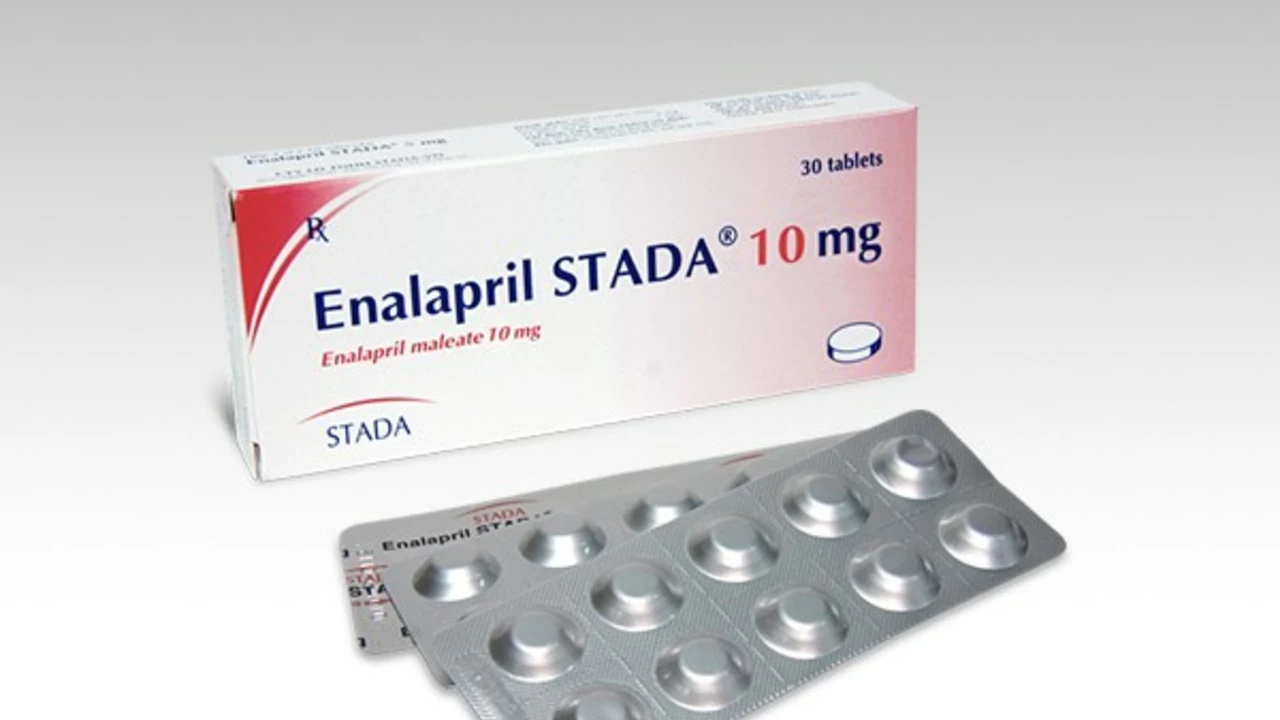Enalapril: what it does, how to use it, and what to watch for
Enalapril is an ACE inhibitor used to lower blood pressure and help some people with heart failure. It relaxes blood vessels, which makes it easier for the heart to pump and lowers the strain on your cardiovascular system. It’s effective, but like any medicine, it needs a bit of care: common side effects and a few important drug interactions matter.
How enalapril works and common doses
Enalapril blocks an enzyme that helps produce angiotensin II, a substance that tightens blood vessels. With less angiotensin II, vessels widen and blood pressure drops. Typical adult dosing for high blood pressure starts at 2.5–5 mg once daily, with many people moving to 10–20 mg once a day. Some people take up to 40 mg a day in divided doses under close medical supervision. For heart failure doctors often start lower (for example, 2.5 mg twice daily) and increase slowly.
Take enalapril the same time each day. You can take it with or without food. If you miss a dose, take it when you remember unless it’s almost time for the next one—don’t double up.
Side effects, safety checks, and interactions
Expect possible dizziness, especially after the first few doses, and a dry cough in some people—cough happens in up to about 20% of users. Less common but serious issues include angioedema (swelling of the face, lips, throat) and high potassium (hyperkalemia). If you have sudden swelling or trouble breathing, seek emergency care.
Before and during treatment, your doctor should check blood pressure, kidney function (creatinine) and potassium. Enalapril can raise potassium and reduce kidney function in some cases, especially if you’re dehydrated or already on other medicines that affect the kidneys.
Watch for interactions: do not combine enalapril with potassium supplements or potassium-sparing diuretics unless your doctor is monitoring you closely. NSAIDs (like ibuprofen or naproxen) can reduce blood pressure control and increase kidney risk. Lithium levels can rise if taken with enalapril. If you’re already on diuretics, your doctor may start enalapril at a lower dose to avoid a sudden drop in blood pressure.
Never take enalapril if you are pregnant or planning to become pregnant—ACE inhibitors can seriously harm the fetus. If pregnancy is possible, talk to your doctor about alternative medicines.
Simple rules: keep routine blood tests, report severe cough or swelling right away, avoid mixing with potassium-raising drugs without approval, and tell every provider you’re taking enalapril. If you have questions about dosing, side effects, or interactions with other prescriptions or supplements, reach out to your healthcare provider for personalized advice.

Enalapril and Alcohol: Understanding the Risks
As a blogger, I feel it's crucial to discuss the potential risks of mixing Enalapril and alcohol. Enalapril is a medication prescribed to treat high blood pressure, and combining it with alcohol can lead to adverse side effects. Some of these side effects include dizziness, lightheadedness, and a potential increase in blood pressure. It's essential to consult with your healthcare provider before consuming alcohol while on Enalapril. Remember, staying informed and making safe choices is the best way to maintain good health.
Read More




